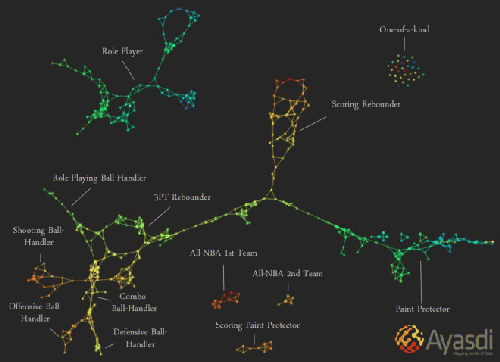Just last week,
Netflix stock soared after it fourth-quarter results top forecasts. On Jan.24, shares of Netflix rose $43.60 to $146.86 on Nasdaq, their highest level since September 2011.
Also in its earnings report, the company predicted it will add as many as 2.1 million U.S. streaming members in the first quarter, more than it gained during the first three months of last year.
How will Netflix to attract new subscribers? Although the company didn't tell, analyzing the Big Data should be one of the techniques. The people who has been following Netflix should know the
Netflix Prize contest. The following provides a bit detail:
Netflix is all about connecting people to the movies they love. To help customers find those movies, we’ve developed our world-class movie recommendation system: CinematchSM. Its job is to predict whether someone will enjoy a movie based on how much they liked or disliked other movies. We use those predictions to make personal movie recommendations based on each customer’s unique tastes. And while Cinematch is doing pretty well, it can always be made better.
Now there are a lot of interesting alternative approaches to how Cinematch works that we haven’t tried. Some are described in the literature, some aren’t. We’re curious whether any of these can beat Cinematch by making better predictions. Because, frankly, if there is a much better approach it could make a big difference to our customers and our business.
So, we thought we’d make a contest out of finding the answer. It’s “easy” really. We provide you with a lot of anonymous rating data, and a prediction accuracy bar that is 10% better than what Cinematch can do on the same training data set. (Accuracy is a measurement of how closely predicted ratings of movies match subsequent actual ratings.) If you develop a system that we judge most beats that bar on the qualifying test set we provide, you get serious money and the bragging rights. But (and you knew there would be a catch, right?) only if you share your method with us and describe to the world how you did it and why it works.
Serious money demands a serious bar. We suspect the 10% improvement is pretty tough, but we also think there is a good chance it can be achieved. It may take months; it might take years. So to keep things interesting, in addition to the Grand Prize, we’re also offering a $50,000 Progress Prize each year the contest runs. It goes to the team whose system we judge shows the most improvement over the previous year’s best accuracy bar on the same qualifying test set. No improvement, no prize. And like the Grand Prize, to win you’ll need to share your method with us and describe it for the world.
According to
the company blog, Netflix announced the $1M Grand Prize winner of the Netflix Prize contest as team
BellKor’s Pragmatic Chaos for their verified submission on July 26, 2009 at 18:18:28 UTC, achieving the winning RMSE of 0.8567 on the test subset. This represents a 10.06% improvement over Cinematch’s score on the test subset at the start of the contest.
To know how much Cinematch has contributed to Netflix's financial result, it will need another project to make the calculation. One thing for sure, the company should collect more data from its subscribers not only from its business but also from other social source. The more the data they get, the better the recommendation they should provide, the larger the revenue they should make.
